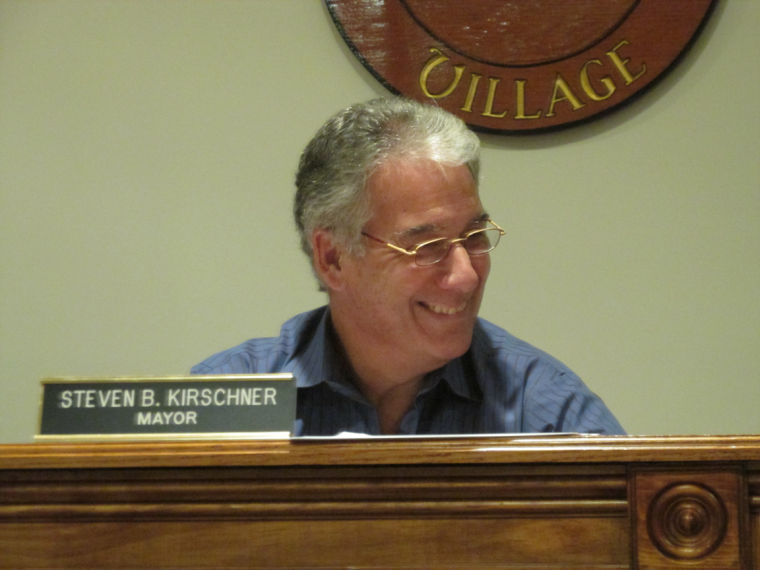A Russell Gardens resident and Mayor Steve Kirschner sparred Thursday on the village’s process for changing parking signs and reasons for the Board of Trustees entering executive session.
The resident, Mitch Pitnick, questioned the Board of Trustees at its monthly meeting after it voted to adjourn the public meeting and go into executive session, where Kirschner said the board would discuss when the village would hold its holiday party and what type of sandwiches board members would bring for its budget meeting, since it is typically held during dinner hours.
“They have nothing to do with any formal decision making,” he said. “I can tell you that most of the residents would agree that whether or not somebody has turkey or they have roast beef at a budget meeting is probably not something that they need to hear at a formal trustee meeting.”
Kristin O’Neill, of the Department of State’s Committee on Open Government, said the board should not have gone into executive session to discuss those topics as they don’t reflect what is permitted by the requirements of the state’s open meetings law.
“You don’t get to go into executive session any time you think residents are not interested in the subject matter,” O’Neill said.
She said the conversation could have been had between board members via email, but if the board was going to discuss those subjects, it should have been during the public hearing.
The open meetings law states that boards can go into executive session when discussing personnel matters, potential litigation, matters that could impact public safety, the proposed purchase, sale or lease of village property or matters that would disclose the identity of a law enforcement agent or informant.
Pitnick also said that the village had changed the wording of a no-parking sign in front of a Darley Road home from 2 a.m to 8 a.m. to 2 a.m. to 10:30 a.m. without a public hearing or adoption of a local law.
Kirschner said he received a complaint by the homeowner at 1 Darley Road about cars parking overnight and that the village’s code enforcer did not arrive before 8 a.m. “When certain parking regulations are changed or moving conditions changed, a lot of times, instead of passing the law and seeing if they work, a lot of times we will change it and see if it’s worthwhile or if it’s not,” he said. “We’d leave it for a couple of months and if it’s not worthwhile, then we’ll remove it.”
Pitnick said if the village could have code enforcement during the restricted hours, that would alleviate the problem and prevent the need to change the hours.
Kirschner said that adopting legislation can be very costly, so instead of approving a law and then going back and repealing it if it is not effective, the village makes changes with the intent of seeing whether or not they work.
“It’s incredibly expensive if we’re not sure that this is going to work,” he said. “So we basically test these things out for a couple of months to see if it’s worthwhile and then we’ll do it.”
Kirschner added that the village does not give out parking violations at signs where the hours have not been officially changed after a public hearing and vote by the board.
“The point is that if we started seeing people violate it then we would pass the law,” he said.
Pitnick said he was “troubled” by that method and thinks “there has got to be a due process component to it.”
“So the law says one thing, you’re not enforcing but you’re using it as a deterrent to deter people from doing something but there’s been no public hearing, there’s been no transparency,” he said.
Kirschner argued that it was the “right thing to do.”
“If you think being mayor that you should do things differently, then you should probably vote for somebody else for mayor,” he said.
Pitnick said he opposed to the change in parking hours, but was was not against previous actions that the village had taken in installing stop signs and handicapped parking signs at specific locations.
He maintained that although he was not opposed to certain actions the village had taken, he disagreed with the process in doing so.
Russell Gardens said to violate open meetings law

By Joe Nikic


